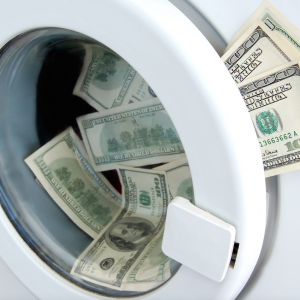Feature your business, services, products, events & news. Submit Website.
Breaking Top Featured Content:
Taibbi: Revenge Of The Money Launderers

Tyler Durden
Sat, 09/26/2020 – 16:20
Authored by Matt Taibbi via taibbi.substack.com,
On December 11, 2012, U.S. Justice Department officials called a press conference in Brooklyn. The key players were once and future bank lawyer Lanny Breuer (disguised at the time as Barack Obama’s Assistant Attorney General in charge of the DOJ’s Criminal Division), and Loretta Lynch, the U.S. Attorney for the Eastern District of New York, and future Attorney General. The duo revealed that HSBC, the largest bank in Europe, had agreed to a $1.9 billion settlement for years of money-laundering offenses.
An alphabet soup of regulatory agencies was represented that day, from the Justice Department, to Immigration and Customs Enforcement (ICE), the U.S. Treasury, the New York County District Attorney, and the Office of the Comptroller of the Currency, among others.
The regulators outlined a slew of admissions, with HSBC’s headline offense being the laundering of $881 million for Central and South American drug outfits, including the infamous Sinaloa cartel.
The laundering was so brazen, regulators said, the bank’s Mexican subsidiary had developed “specially shaped boxes” for cartels to pack with cash and slide through teller windows. The seemingly massive fine reflected serious offenses, including violations of the Bank Secrecy Act (BSA), the International Emergency Economic Powers Act (IEEPA) and the Trading with the Enemy Act (TWEA).
The next years would follow up with a flurry of similar settlements extracting sizable-sounding fees from other transnational banks for laundering money on behalf of terrorists, sanctioned businesses, mobsters, drug dealers, and other malefactors. Firms like JP Morgan Chase ($1.7 billion), Standard Chartered ($300 million), and Deutsche Bank ($258 million) were soon announcing settlements either for laundering, sanctions violations, or both.
Even seasoned financial reporters accustomed to seeing soft-touch settlements scratched their heads at some of the deals. In the case of HSBC, the stiffest penalty doled out to any individual for the biggest drug-money-laundering case in history — during which time HSBC had become the “preferred financial institution” of drug traffickers, according to the Justice Department — involved an agreement to “partially defer bonus compensation for its most senior executives.” If bankers can’t get time for washing money for people who put torture videos on the internet, what can they get time for?
Read the rest of the report here…
Continue reading at ZeroHedge.com, Click Here.

